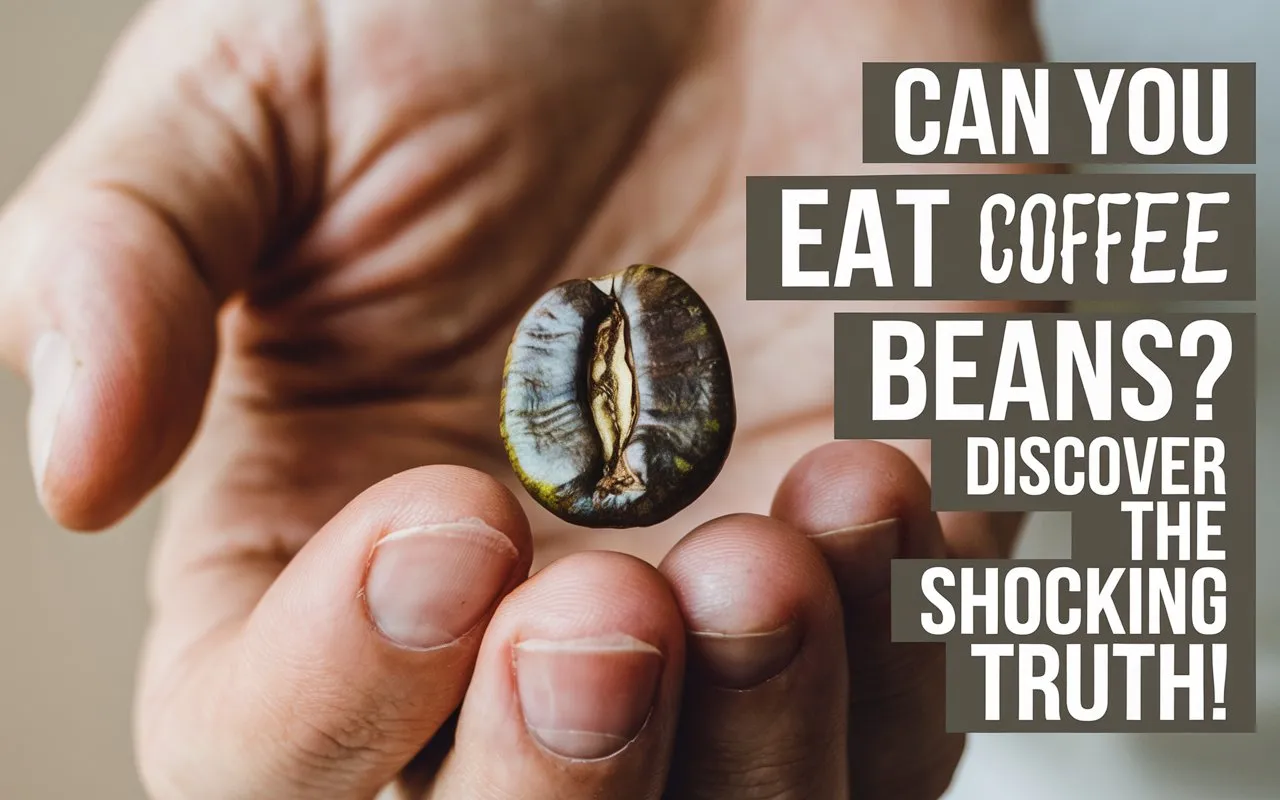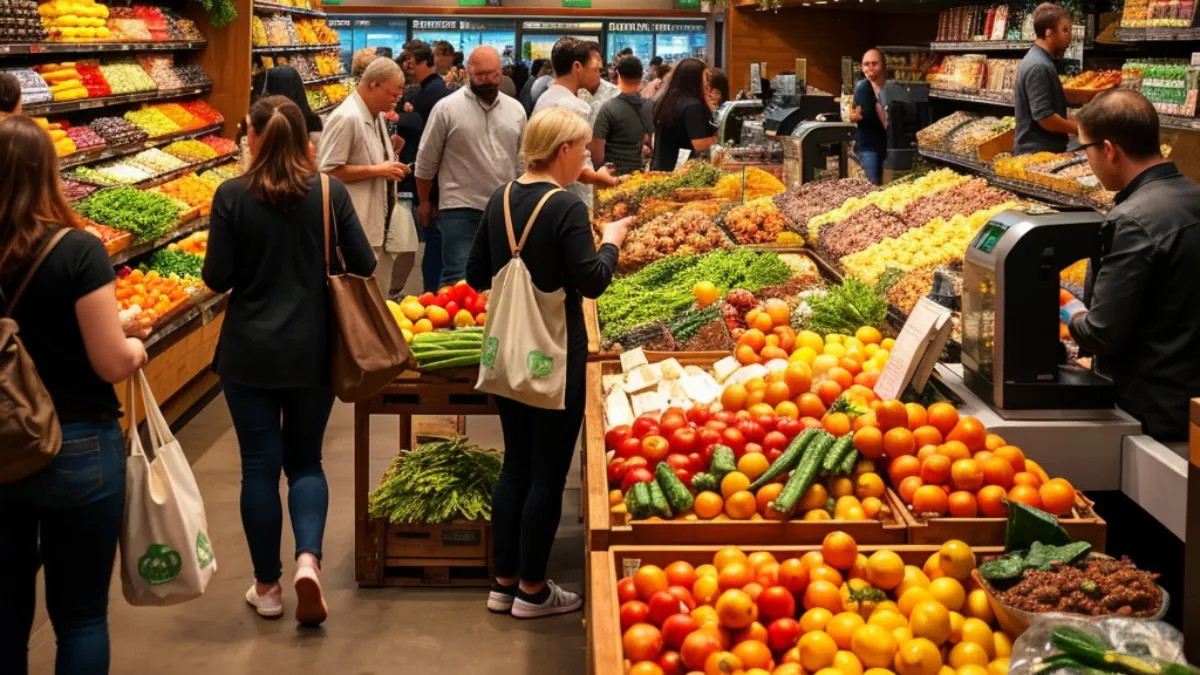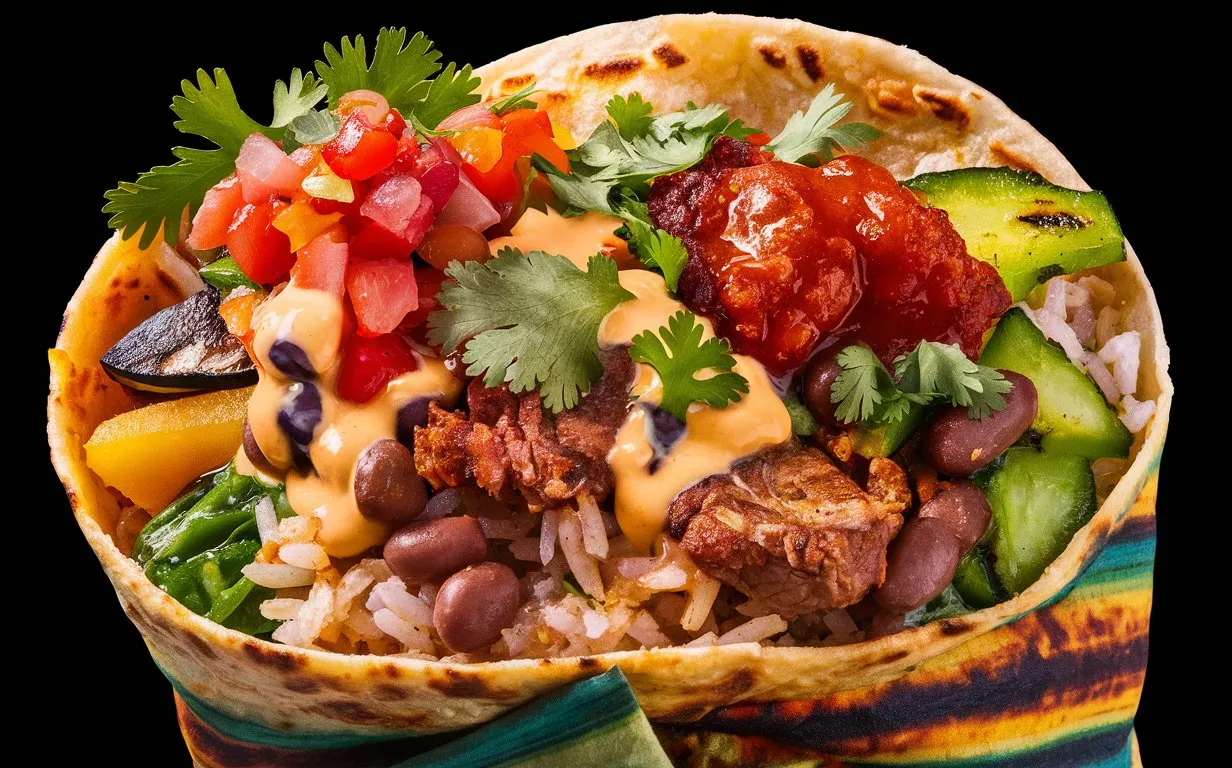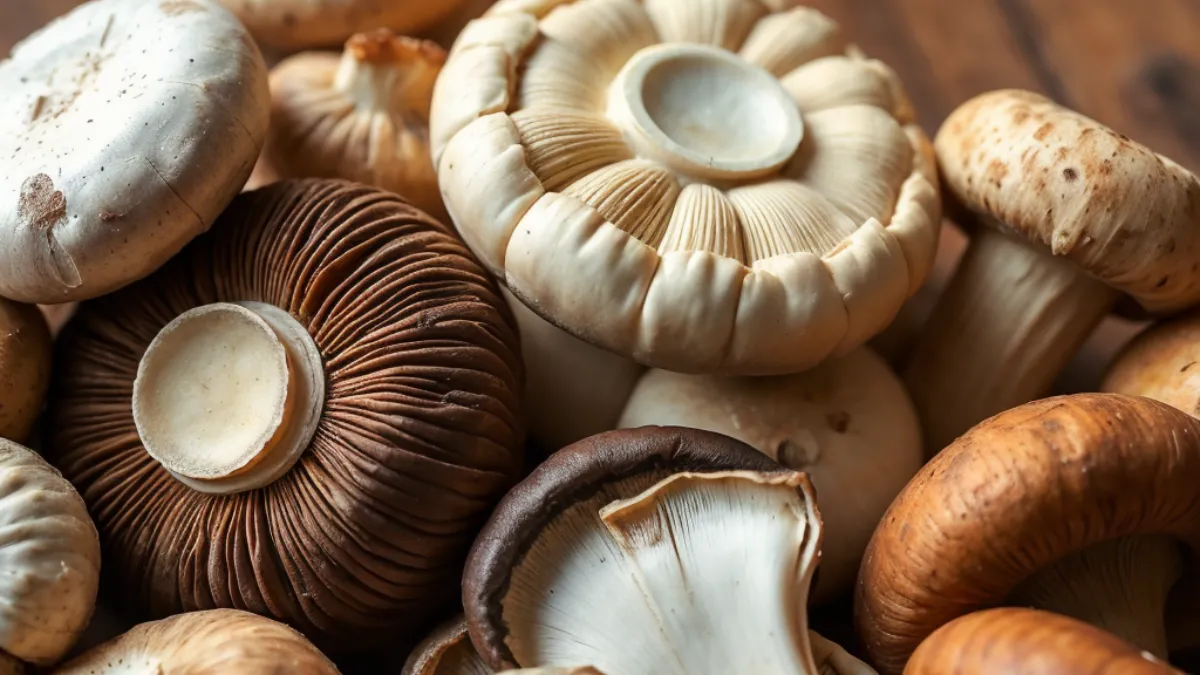Table of Contents
Have you ever wondered if you can eat coffee beans? The flavor and aroma of coffee appeal to many individuals, but eating coffee beans might seem unusual. Surprisingly, eating coffee beans is possible and has unique benefits and risks. In this article, we’ll explore everything you need to know about eating coffee beans, including the health benefits, potential side effects, and how they can boost your daily routine.
What Happens When You Eat Coffee Beans?
Eating coffee beans may sound strange, but they are safe to eat and can offer various benefits. Many people chew one coffee bean or more for a quick burst of energy, often as a replacement for drinking coffee.
They are safe to eat, and coffee beans are edible; roasted coffee beans can be a delicious snack that provides a potent hit of caffeine and nutrients. However, it’s important to remember that coffee beans have a higher caffeine content than your usual cup of brewed coffee, meaning moderation is vital to avoiding over-stimulation.
Energy Boost and Focus
The caffeine in coffee beans helps with focus and offers an immediate energy boost. Whether eating raw coffee beans or roasted beans, the caffeine intake tends to be higher than drinking coffee.
Eating one coffee bean can be similar in caffeine content to a sip of coffee, and many people find that chewing dark roast beans offers a faster energy boost than consuming coffee as a beverage. This happens because caffeine is absorbed faster when directly ingested. The active ingredients in coffee beans also help improve alertness and concentration.
Coffee beans in moderation are a great way to stay energized, but keep in mind the potential side effects of consuming too much or exceeding your usual coffee consumption.
Nutrient-Rich Snack
Coffee beans aren’t just about caffeine; they are packed with benefits beyond energy. Eating roasted coffee beans provides fiber, antioxidants, and even trace levels of vitamins and minerals. These health benefits of coffee contribute to overall wellness, helping the body combat damage from free radicals. The fiber from ground coffee aids digestion, making coffee beans a nutrient-rich option for those seeking a healthy, energy-packed snack.
Regarding flavor, coffee beans taste similar to the coffee grounds used in your morning brew. Green coffee beans or dark roast varieties have distinct tastes, with roasted coffee beans delivering a richer, more chocolatey flavor. Some even enjoy chocolate-covered coffee beans, as the combination of coffee and chocolate gives a satisfying crunch and energy boost.
Ways to Eat Coffee Beans
There are various ways to eat coffee beans. For example, some prefer eating undiluted roasted coffee beans, while others enjoy the classic pairing of coffee and chocolate. Consider the number of beans you eat, aiming for coffee beans in moderation to avoid too much caffeine.
Green arabica or robusta beans are also possible, though the taste might not be as appealing as dark roast beans. You can even try finely ground coffee added to recipes for an extra caffeine kick.
Know About Eating Coffee Beans
Eating coffee beans delivers a concentrated form of caffeine, much stronger than a regular sip of coffee. The chemicals in coffee—such as antioxidants and caffeine—are quickly absorbed when eating whole coffee beans, giving a swift and lasting energy boost.
Coffee beans come in various forms, such as green beans, roasted coffee beans, and even chocolate-covered. Each provides a different experience, but all are packed with benefits. Just be sure you are consuming without exceeding safe levels of caffeine intake.
Whether you choose to eat roasted coffee, chew on dark chocolate-covered coffee, or savor the taste of raw coffee, it is clear that eating coffee beans can offer significant benefits—especially for those seeking a convenient and nutrient-packed way to stay alert and energized.
Can You Eat Coffee Beans: The Benefits of Eating Coffee Beans
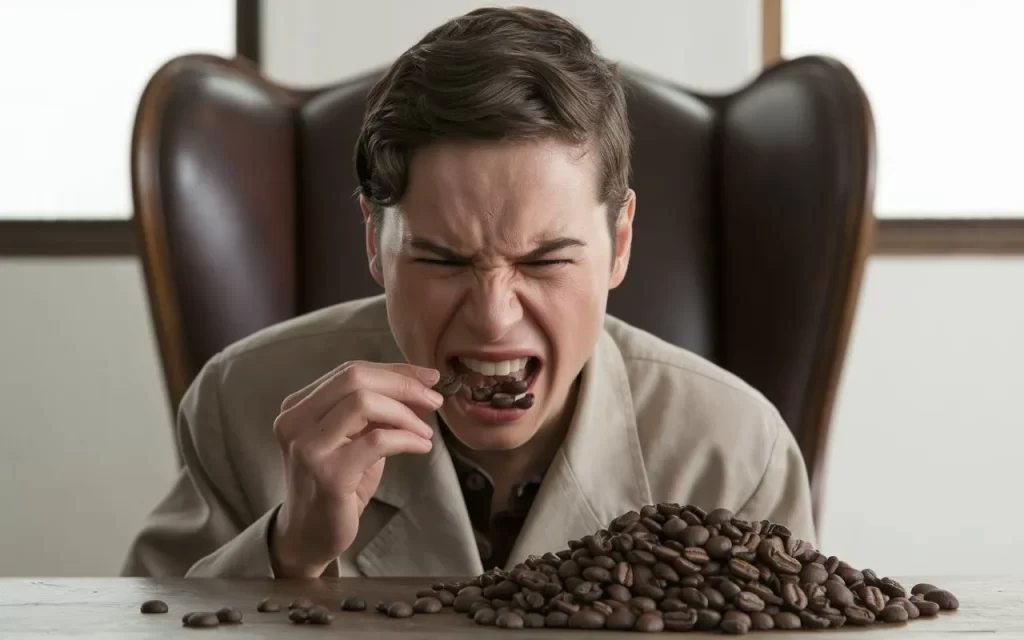
When you consider whether you can eat coffee beans, you might be surprised by the number of health benefits they offer. Let’s dive into a few key benefits that make coffee beans a great addition to your diet.
Powerful Antioxidants
Antioxidants abound in coffee beans, particularly chlorogenic acid. Antioxidants may lessen your chance of developing heart disease and premature aging by shielding your cells from the damaging effects of free radicals. If you want a simple way to add antioxidants to your diet, eating coffee beans can help.
Improved Metabolism
Caffeine is known to increase metabolism, meaning it helps the body burn calories more efficiently. A strong dosage of caffeine, such as that found in coffee beans, can briefly increase metabolism and aid in weight management.
Can You Eat Coffee Beans: Are There Any Risks?
Although there are health benefits to consuming coffee beans, it’s essential to be aware of the risks as well. Can you eat coffee beans without any adverse side effects? In most cases, yes, but overconsumption can lead to problems.
Overconsumption of Caffeine
Coffee beans contain a much higher concentration of caffeine than brewed coffee. Eating too many beans can lead to jitteriness, anxiety, and even sleep issues. It’s essential to limit your intake and avoid eating coffee beans close to bedtime.
Digestive Issues
Some people may experience digestive problems after eating coffee beans due to their fiber content. While fiber is generally good for digestion, eating too many coffee beans can cause stomach discomfort or bloating. Chewing on raw or unroasted coffee beans may also be harsh on your teeth, so it’s better to opt for roasted ones.
Can You Eat Coffee Beans: How Many Coffee Beans Can You Eat Safely?
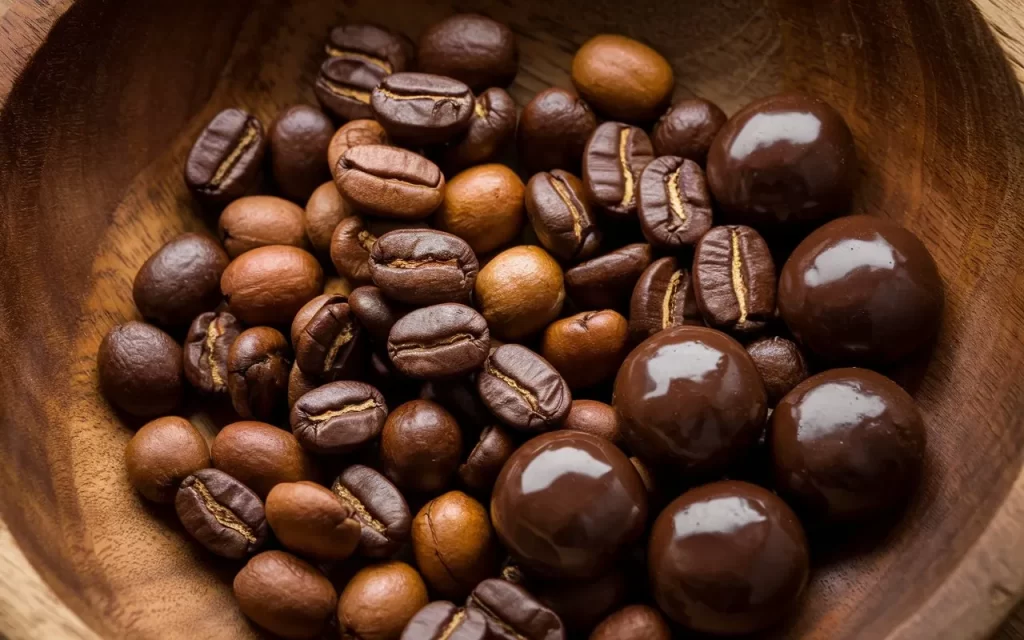
Now that we’ve answered the question, can you eat coffee beans? Let’s talk about moderation. Like most things, eating coffee beans is safe as long as you don’t overdo it. However, how much caffeine should you really eat?
Recommended Daily Intake
A safe and adequate number of coffee beans to eat depends on your caffeine tolerance. You can get the same amount of caffeine from eating 8 to 10 coffee beans as you would from a typical cup of coffee. For those sensitive to caffeine, start with fewer beans and see how your body reacts.
Caffeine Sensitivity
Everyone has different levels of caffeine sensitivity. If you know you’re sensitive to caffeine, it’s best to eat fewer coffee beans to avoid any unpleasant side effects. For individuals who are not used to caffeine, even a tiny amount of coffee beans can have a noticeable impact.
Also Read: Food From the Heavens NYT: Unveiling Divine Flavors and Secrets
Can You Eat Coffee Beans: How to Eat Coffee Beans
Now that you know the answer to can you eat coffee beans, let’s look at the best ways to enjoy them.
Roasted Coffee Beans
Roasted coffee beans are the most common and delicious option for snacking. They can be eaten on their own or mixed with chocolate for an extra treat. Roasting enhances the flavor of the beans, making them crunchy and enjoyable to eat.
Chocolate-Covered Coffee Beans
For a sweet twist, try chocolate-covered coffee beans. These treats are popular for a reason – they combine the richness of coffee with the sweetness of chocolate. They’re delicious as a dessert or as a snack!
So, can you eat coffee beans? Without a doubt, the answer is yes! Consuming coffee beans is safe and has several advantages, such as boosted energy, sharper focus, and potent antioxidants. But, like with any food, moderation is key to avoiding any potential adverse effects, including overindulging in coffee or experiencing digestive problems.

